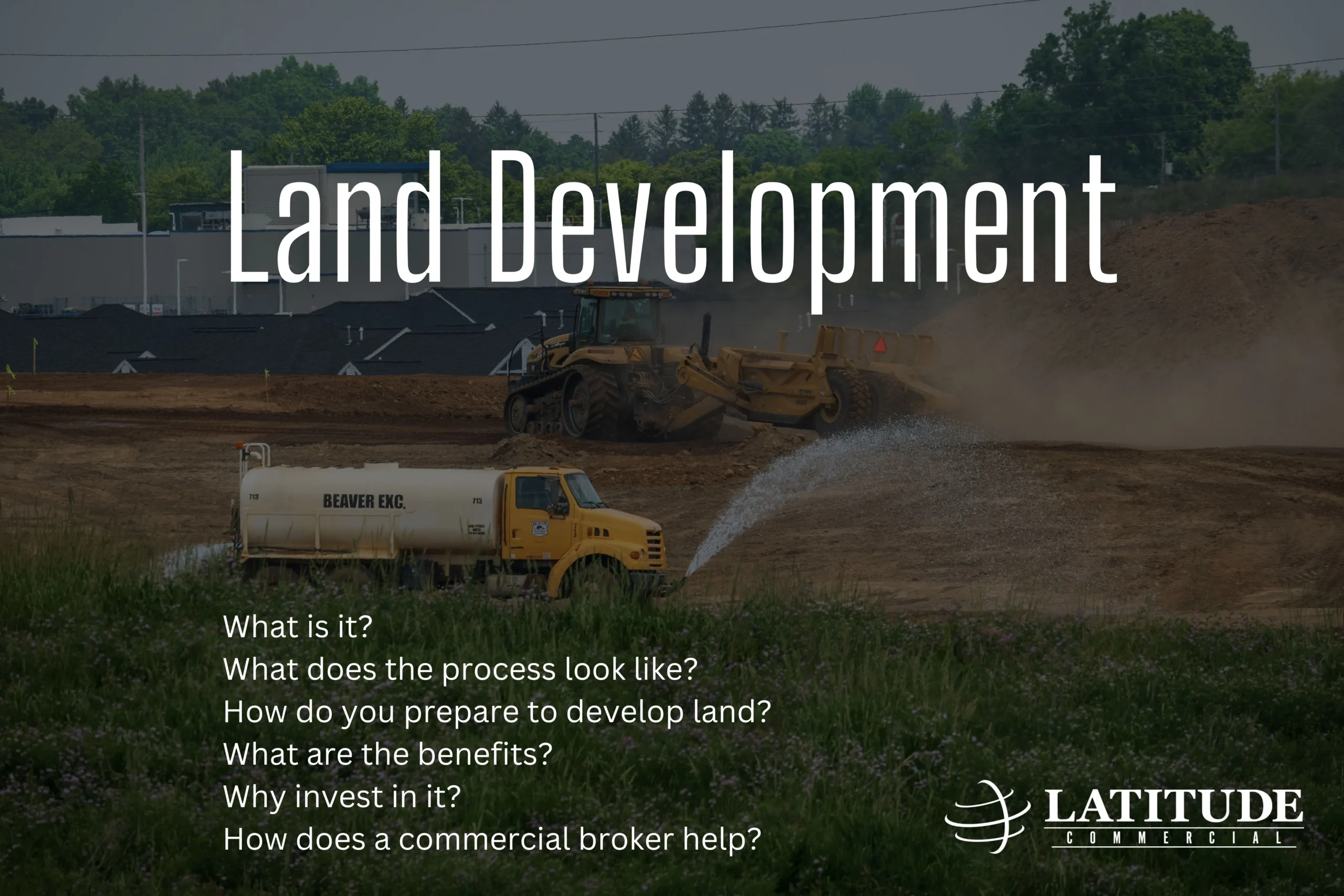
11 Apr
What is Land Development and Why Should You Consider It?
What is Land Development?
Land development refers to the process of altering the landscape to accommodate various uses such as residential, commercial, or industrial purposes. This transformation involves turning raw land into developed properties that add value to the community and economy. Examples of developed land include shopping centers, office buildings, residential subdivisions, and industrial parks.
The Process and Preparation
- Feasibility Analysis: This initial step involves assessing the land’s potential for development, considering factors like zoning regulations, environmental impact, and market demand.
- Design and Planning: Collaborate with architects, engineers, and urban planners to create a blueprint that optimizes the land use while meeting regulatory standards.
- Permitting and Approvals: Navigate through the complex process of obtaining permits and approvals from local authorities, ensuring compliance with building codes and environmental regulations.
- Infrastructure Development: Construct roads, utilities, and other essential infrastructure to support the developed land and facilitate connectivity.
- Construction and Marketing: Build the structures according to the approved plans and market the developed properties to potential buyers or tenants.
Benefits in Business and Investment
- Increased Property Value: Developed land commands higher value compared to undeveloped parcels, offering significant returns on investment.
- Diversification: Investing in land development diversifies your portfolio and opens avenues for steady income streams through rentals or sales.
- Community Impact: Developing land contributes to economic growth, creates job opportunities, and enhances the overall quality of life in the area.
Why Choose Land Development as an Investment?
- Appreciation: Over time, developed properties appreciate in value, providing a lucrative investment opportunity.
- Income Generation: Rental income from commercial properties ensures a steady cash flow, offering financial stability.
- Tax Benefits: Investors may benefit from tax deductions related to depreciation, mortgage interest, and property taxes.
- Portfolio Diversification: Adding land development investments diversifies risk and potentially increases overall portfolio returns.
Role of a Commercial Broker in Land Development
A skilled commercial broker plays a crucial role in land development by:
- Market Research: Conducting thorough market research to identify lucrative development opportunities.
- Negotiation: Negotiating favorable deals with landowners, contractors, and investors to optimize project profitability.
- Legal Expertise: Providing legal expertise and guidance throughout the complex permitting and approval process.
- Marketing and Sales: Effectively marketing developed properties to attract buyers or tenants and maximize returns.
Latitude Commercial: Your Partner in Land Development
Latitude Commercial is a leading commercial real estate brokerage firm serving Indiana and Illinois. Our team of top-tier commercial brokers specializes in land development services, offering:
- Local Expertise: In-depth knowledge of the Indiana and Illinois markets to identify prime development opportunities.
- Strategic Partnerships: Collaborating with architects, engineers, and legal professionals to streamline the development process.
- Tailored Solutions: Customized strategies to meet your specific goals and maximize ROI.
- Proven Track Record: Demonstrated success in delivering high-quality, profitable land development projects.
Embarking on a land development journey can be a rewarding experience, offering numerous benefits for businesses and investors alike. With the guidance of a reputable commercial broker like Latitude Commercial, you can navigate the complexities with confidence and achieve unparalleled success in the dynamic real estate market of Indiana and Illinois. Unlock the potential of land development and pave the way for sustainable growth and prosperity.
Latitude Commercial provides commercial real estate services such as purchasing, leasing, landlord representation, tenant representation, and commercial property management throughout the states of Illinois and Indiana. To find out how we can help you, call us today at (219) 864-0200.
Click here to see commercial properties available for lease and for sale near you!
YOU MIGHT ALSO BE INTERESTED IN…
What is Landlord Representation and Why Do You Need It?
A Guide To Leasing Commercial Property – Landlord’s Guide for Renting
7 Tips for Buying Commercial Real Estate at Auction
Capital Gains Tax: Strategies for Commercial Real Estate Investors




